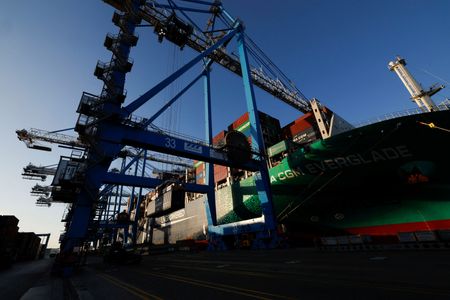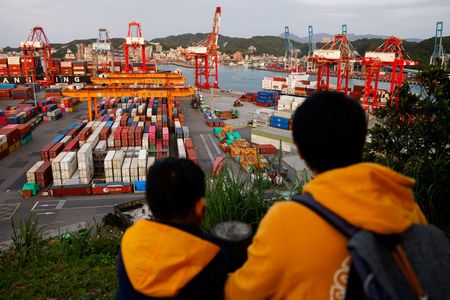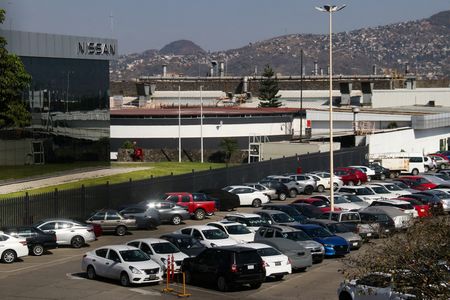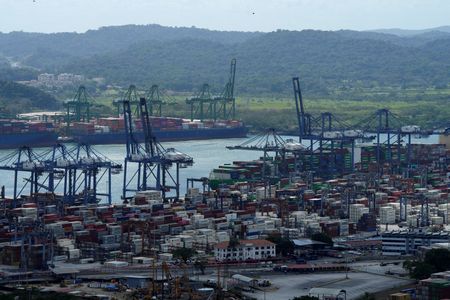By Sybille de La Hamaide
PARIS (Reuters) -French shipping giant CMA CGM said on Tuesday it is interested in taking over some of CK Hutchison’s ports after the Hong Kong conglomerate’s exclusive talks ended with a consortium led by BlackRock this week.
CK Hutchison agreed in March to sell the majority of its $22.8 billion global ports business to the consortium also including Italian billionaire Gianluigi Aponte’s family-run shipping company MSC, but the exclusive talks expired on Sunday.
Gaining a stake in CK Hutchison’s 43 terminals in 23 countries included in the preliminary deal would offer CMA CGM greater control over the supply chain, especially if it can get hold of one of the ports along the Panama Canal.
“It’s very important for the industry, and it’s important for us as a major player in this sector,” CMA CGM Chief Financial Officer Ramon Fernandez told reporters during the presentation of the company’s second quarter results. “We are present in 65 terminals around the world so we are following this operation very closely and are naturally interested in participating,” he added.
CMA CGM already has 65 port terminals around the world. CK Hutchison said on Monday it was in talks with the consortium to add a Chinese “major strategic investor” to the bid and sources told Reuters Chinese shipping giant COSCO was looking to join.
CMA CGM, the world’s third-largest container shipping line, reported virtually stable sales in the second quarter at $13.2 billion, while net profit fell to $521 million from $661 million a year earlier.
The group remained cautious about its outlook for the second half of the year, citing geopolitical and macroeconomic uncertainties.
Global container trade grew by over 4% in the first five months of 2025, driven mainly by a rise in China’s exports. While China’s exports to the U.S. dropped 8%, those to Southeast Asia rose 18%, to the Middle East 15%, and to the EU 11%.
The new EU–US deal will require operators to adapt, but it only concerns about 2% of global container trade so the direct impact will be limited compared to the much larger shifts between China and the U.S., Fernandez said.
(Reporting by Sybille de La Hamaide; editing by Giles Elgood)









